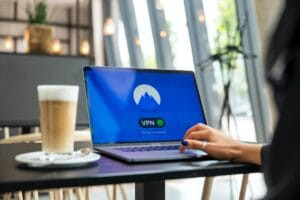As a cryptocurrency investor, safeguarding your digital assets is paramount. With the growing popularity of cryptocurrencies, the threat of hacks, scams, and other security breaches has become increasingly prevalent.
In this article, we’ll cover 10 essential security best practices that every cryptocurrency investor should implement to protect their investments and ensure the safety of their digital assets.
1. Choose a Secure Wallet
The first step to securing your digital assets is choosing a safe and reliable wallet. Various types of wallets are available, each with its pros and cons. Here are some key factors to consider when selecting a wallet:
- Hardware wallets: These physical devices store your private keys offline, providing the highest level of security. Hardware wallets, such as Ledger or Trezor, are recommended for storing large amounts of cryptocurrencies.
- Software wallets: These are apps or programs that run on your computer or mobile device. While software wallets are convenient for everyday use, they may be more vulnerable to hacks than hardware wallets. Choose a reputable software wallet with a strong security track record, and always keep your software up to date.
- Multi-signature wallets: These wallets require multiple signatures to authorize transactions, adding an extra layer of security. Multi-signature wallets can help protect your assets from theft or loss due to a single compromised key.
2. Enable Two-Factor Authentication (2FA)
Two-Factor Authentication (2FA) is a security feature that requires users to provide two verification forms before accessing their accounts. This typically involves entering a unique code sent to your mobile device or generated by a dedicated authentication app, such as Google Authenticator or Authy. Enable 2FA on all your cryptocurrency accounts, including exchanges and wallets, to add an extra layer of protection against unauthorized access.
3. Create Strong, Unique Passwords
Use strong, unique passwords for all your cryptocurrency accounts. A strong password should include a mix of uppercase and lowercase letters, numbers, and special characters. Avoid using easily guessable information, such as your name, birthdate, or common phrases. Additionally, do not reuse passwords across multiple accounts, as this can put all your assets at risk if one account is compromised. Consider using a reputable password manager to help securely generate and store your passwords.

4. Be Cautious with Phishing Scams
Phishing scams are a common tactic hackers use to trick users into revealing sensitive information, such as login credentials or private keys. Be cautious when clicking on links in emails or messages from unknown sources. Always verify the authenticity of the sender and the website’s URL before entering any personal information. If in doubt, contact the company or service provider directly to confirm the legitimacy of the communication.
5. Keep Your Private Keys Safe
Your private keys are the most critical information when securing your digital assets. Never share your private keys with anyone, and avoid storing them on devices connected to the internet. If possible, create a secure backup of your private keys and keep it in a safe location, such as a safety deposit box or a fireproof safe.
6. Regularly Monitor Your Accounts and Transactions
Regularly review your cryptocurrency accounts and transactions to detect any suspicious activity. Set up notifications or alerts for significant transactions or account changes, and immediately report any unauthorized activity to the relevant platform or service provider. Keeping a close eye on your accounts can help you quickly identify and address potential security breaches.
7. Stay Informed about Security Updates and Threats
Stay up-to-date with the latest security news and updates in the cryptocurrency space. Follow reputable sources and experts to learn about new threats, vulnerabilities, and best practices for securing your digital assets. You can proactively address potential risks and take necessary precautions to protect your investments by staying informed.

8. Use a VPN When Accessing Public Wi-Fi
Public Wi-Fi networks can be insecure and susceptible to hacking. If you need to access your cryptocurrency accounts or perform transactions on public Wi-Fi, use a Virtual Private Network (VPN) to encrypt your connection and protect your data from prying eyes. A VPN can also help you maintain privacy and security when accessing cryptocurrency platforms from different locations.
9. Educate Yourself on Common Cryptocurrency Scams
Be aware of common cryptocurrency scams, such as Ponzi schemes, fake ICOs, and fraudulent exchanges. Please educate yourself on these scams’ warning signs and red flags to avoid falling victim to them. Always perform due diligence before investing in any cryptocurrency project or using a new platform.
10. Keep a Low Profile
While sharing your cryptocurrency success stories with friends and family is tempting, maintaining a low profile can help protect your digital assets. Publicly disclosing your holdings can make you a target for hackers and criminals. Be cautious about the information you share online and practice good operational security to minimize the risk of theft or loss.
Conclusion
Securing your digital assets is essential for any cryptocurrency investor. By implementing these security best practices, you can protect your investments and minimize the risk of hacks, scams, and other threats. Remember that safeguarding your digital assets is an ongoing process that requires vigilance and proactive measures to stay ahead of potential risks.
FAQ
What is the best type of wallet to store my cryptocurrencies securely?
Hardware wallets are considered the most secure option for storing large amounts of cryptocurrencies, as they keep your private keys offline. However, a reputable software wallet with a strong security track record can be a suitable choice for everyday use and smaller amounts. Consider using multi-signature wallets for added security.
What is Two-Factor Authentication (2FA), and why is it essential for cryptocurrency security?
Two-Factor Authentication (2FA) is a security feature that requires users to provide two verification forms before accessing their accounts. This typically involves entering a unique code sent to your mobile device or generated by a dedicated authentication app. Enabling 2FA on your cryptocurrency accounts adds an extra layer of protection against unauthorized access.
How can I identify and avoid phishing scams?
To avoid phishing scams, be cautious when clicking on links in emails or messages from unknown sources. Always verify the authenticity of the sender and the website’s URL before entering any personal information. If in doubt, contact the company or service provider directly to confirm the legitimacy of the communication.
How can I keep my private keys safe?
Never share your private keys with anyone, and avoid storing them on devices connected to the internet. If possible, create a secure backup of your private keys and keep it in a safe location, such as a safety deposit box or a fireproof safe.
How can I stay informed about security updates and threats in the cryptocurrency space?
Follow reputable sources and experts in the cryptocurrency space to stay up-to-date with the latest security news, updates, and best practices. Staying informed can help you proactively address potential risks and take necessary precautions to protect your digital assets.






